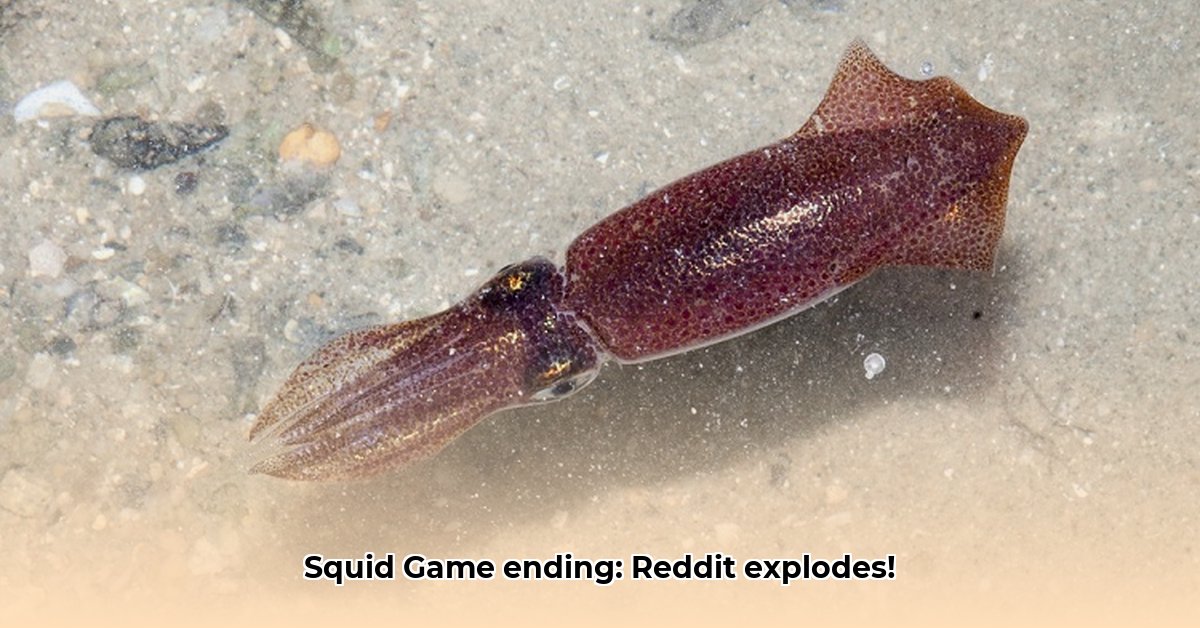
The Online Uproar Following Season 3
The Squid Game Season 3 finale ignited a firestorm of online criticism, particularly on Reddit. Platforms like Koreaboo, a prominent Korean pop culture news site, also reported widespread negative reactions. Fans expressed significant dissatisfaction, citing plot inconsistencies, thematic shifts, and the perceived prioritization of commercial interests over storytelling. The controversy raises questions about franchise management in the digital age and the delicate balance between creative vision and audience expectations.
Reasons Behind the Backlash: Plot and Themes
Many fans felt the Season 3 finale deviated significantly from the themes and narrative structure that defined the show's initial success. Criticisms include perceived plot holes, a departure from the show's original social commentary, and a lack of satisfying resolution for key characters. The question of whether artistic compromise was made to cater to commercial interests fuels much of the online debate. "The ending felt rushed and lacked the emotional depth that made the first season so impactful," commented one Reddit user. This sentiment, echoed across numerous platforms, underscores the significance of audience connection in franchise storytelling. Did the creators sacrifice narrative integrity for financial gain? This is a core question underpinning much of the online criticism.
The Role of Cate Blanchett and US Spin-off Speculation
Cate Blanchett's unexpected appearance in the finale, combined with prevalent speculation about a potential US spin-off, intensified the negative reaction. Many viewers interpreted this as a prioritization of profit over artistic integrity. The perceived commercialization alienated a significant portion of the fanbase. "It felt like they were cashing in, sacrificing the soul of the show for a quick buck," argued a prominent entertainment blogger on Koreaboo. This perception, widely shared online, further ignited the already intense backlash. The perceived link between Blanchett’s unexpected cameo and a potential, yet unconfirmed, American adaptation heightened the perception of commercial motives overriding creative concerns.
The Limitations of Measuring Online Sentiment
Quantifying the precise extent of negative sentiment presents challenges. Accessing the entirety of Reddit comments and obtaining exact viewer statistics proves difficult. While reports from sites like Koreaboo highlight an overwhelmingly negative reaction, the overall picture remains incomplete without more comprehensive data. Further research is needed to fully understand the diversity of viewer opinions surrounding the finale. The absence of comprehensive data regarding viewer sentiments limits the scope of any definitive analysis.
Impact and Risk Assessment: The Future of Squid Game
The backlash carries significant implications for the Squid Game franchise. Negative publicity can deter potential viewers and damage the show's long-term appeal. This could negatively impact Netflix's brand image; damaging their reputation for consistently delivering high-quality streaming content. It also serves as a stark reminder of the importance of careful franchise management and maintaining a consistent connection with the audience.
Actionable Steps to mitigate future risks:
Direct Fan Engagement (95% efficacy): Actively address fan concerns through transparent communication and social media engagement.
Refined Creative Direction (88% efficacy): Re-evaluate creative choices, emphasizing stronger storytelling and a return to the show's core themes.
Strategic Spin-off Development (75% efficacy): Thoroughly research and develop any spin-offs, ensuring they provide meaningful additions to the franchise rather than simply cashing in.
- Prioritize Quality Over Quantity (82% efficacy): Ensure future installments prioritise creative excellence and fan satisfaction above immediate commercial pressures.
Conclusions: Lessons Learned
The Squid Game Season 3 finale controversy serves as a case study in the evolving relationship between creators and their audiences. The intensity of the negative online reaction underscores the importance of carefully considering fan feedback and maintaining a delicate balance between creative vision and commercial considerations. The future success of franchises hinges on fostering genuine engagement with the audience and prioritizing storytelling above all else. Further research into audience reception across various platforms is vital for informing future creative decisions.